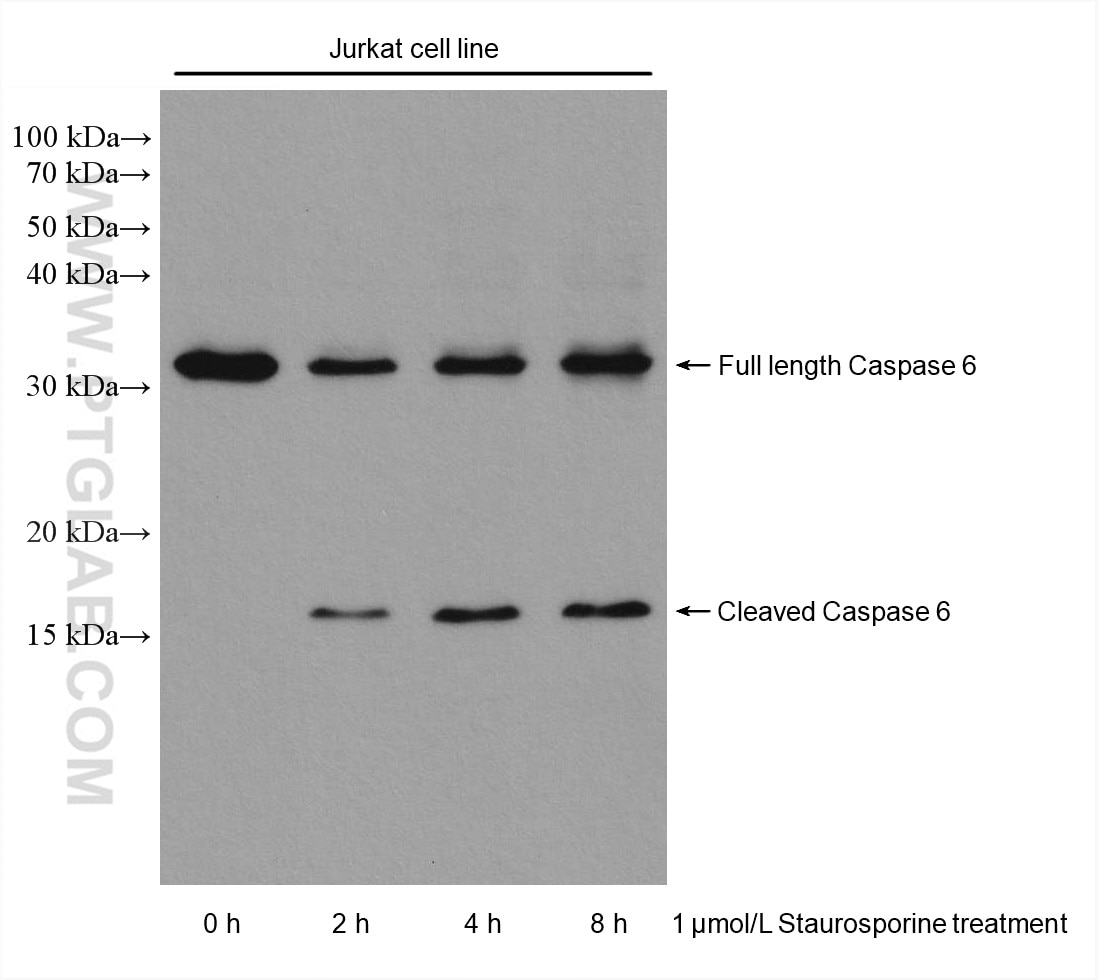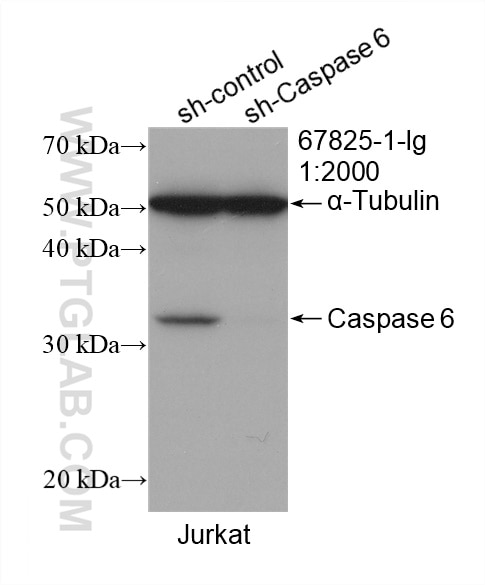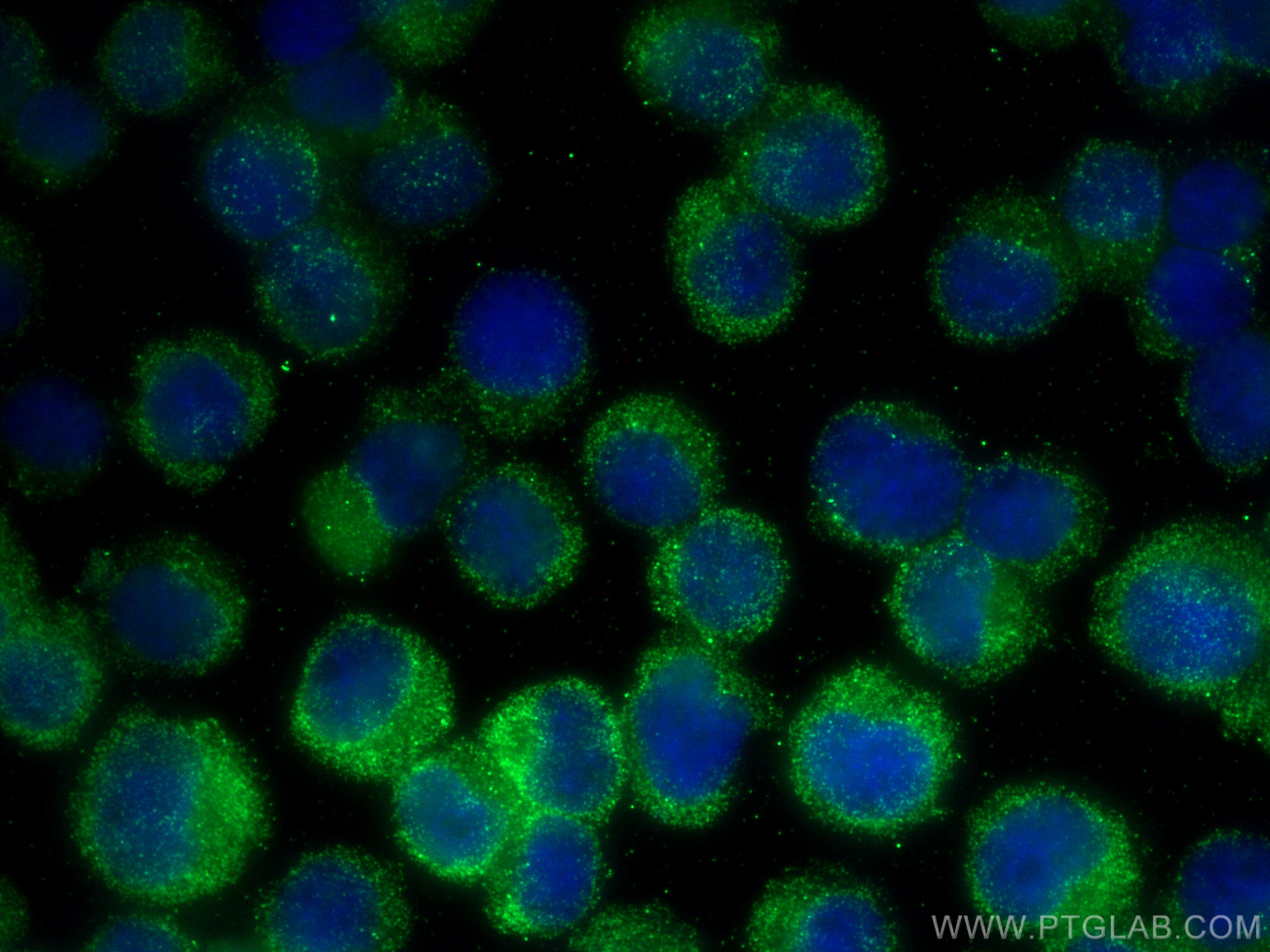- Featured Product
- KD/KO Validated
Caspase 6 Monoklonaler Antikörper
Caspase 6 Monoklonal Antikörper für WB, IF/ICC, Indirect ELISA
Wirt / Isotyp
Maus / IgG2b
Getestete Reaktivität
human
Anwendung
WB, IF/ICC, Indirect ELISA
Konjugation
Unkonjugiert
CloneNo.
1H7F9
Kat-Nr. : 67825-1-PBS
Synonyme
Geprüfte Anwendungen
Produktinformation
67825-1-PBS bindet in WB, IF/ICC, Indirect ELISA Caspase 6 und zeigt Reaktivität mit human
| Getestete Reaktivität | human |
| Wirt / Isotyp | Maus / IgG2b |
| Klonalität | Monoklonal |
| Typ | Antikörper |
| Immunogen | Caspase 6 fusion protein Ag20534 |
| Vollständiger Name | caspase 6, apoptosis-related cysteine peptidase |
| Berechnetes Molekulargewicht | 33 kDa, 22 kDa |
| Beobachtetes Molekulargewicht | 33-35 kDa,22kDa, 18kDa |
| GenBank-Zugangsnummer | BC000305 |
| Gene symbol | Caspase 6 |
| Gene ID (NCBI) | 839 |
| Konjugation | Unkonjugiert |
| Form | Liquid |
| Reinigungsmethode | Protein-A-Reinigung |
| Lagerungspuffer | PBS only |
| Lagerungsbedingungen | Store at -80°C. 20ul Größen enthalten 0,1% BSA. |
Hintergrundinformationen
Caspase-6 belongs to caspase family of cysteinyl-aspartate specific proteases.Precursor of CASP6 produces two subunits, large (18kDa) and small (16kDa) that dimerize. It cleaves poly(ADP-ribose) polymerase, as well as lamins and is involved in the activation cascade of caspases responsible for apoptosis execution. Researches showed that CASP6 could be an early instigator of neuronal dysfunction and regulates B cell activation and differentiation into plasma cells by modifying cell cycle entry. IRAK3 is an important target for CASP6. It can reveal five bands of 28, 32, 36, 49, and 64 kDa in human neurons and fetal brain in western blot, the 32 and 28 kDa bands represent procaspase-6 and pro-arm caspase-6. Procaspase-6 is more abundant than pro-arm caspase-6 in adult tissue, whereas pro-arm caspase-6 is more abundant than pro-caspase-6 in fetal brain and cultured neurons. The higher molecular mass bands at 49 and 64 kDa likely represent dimers of p28 and p32.(PMID:10438520). In rat testis, it can be detected two bands of 34 kDa and 12 kDa or 14 kDa(PMID:12538628).







